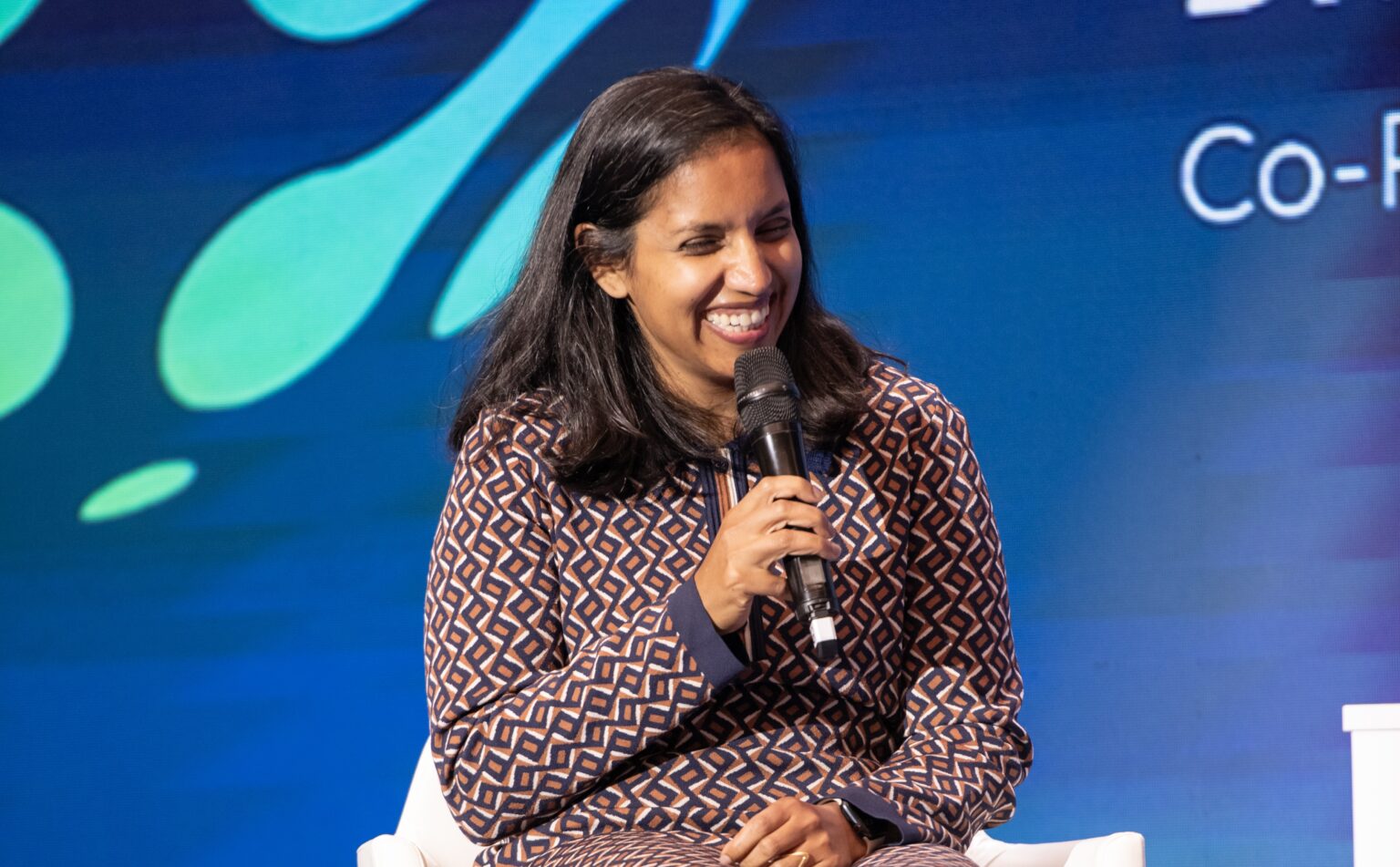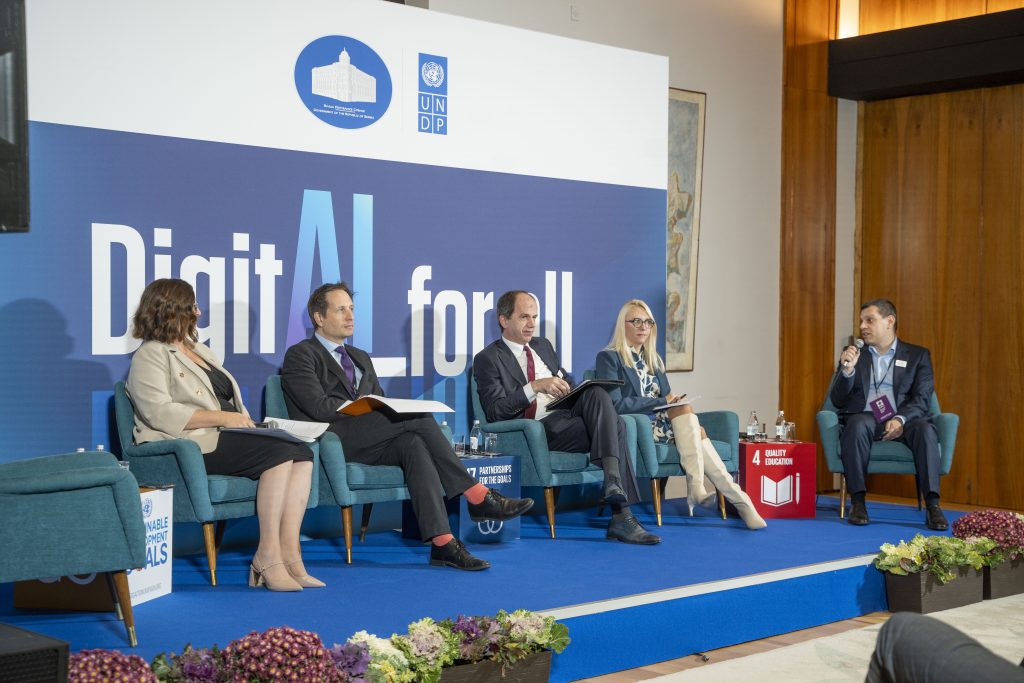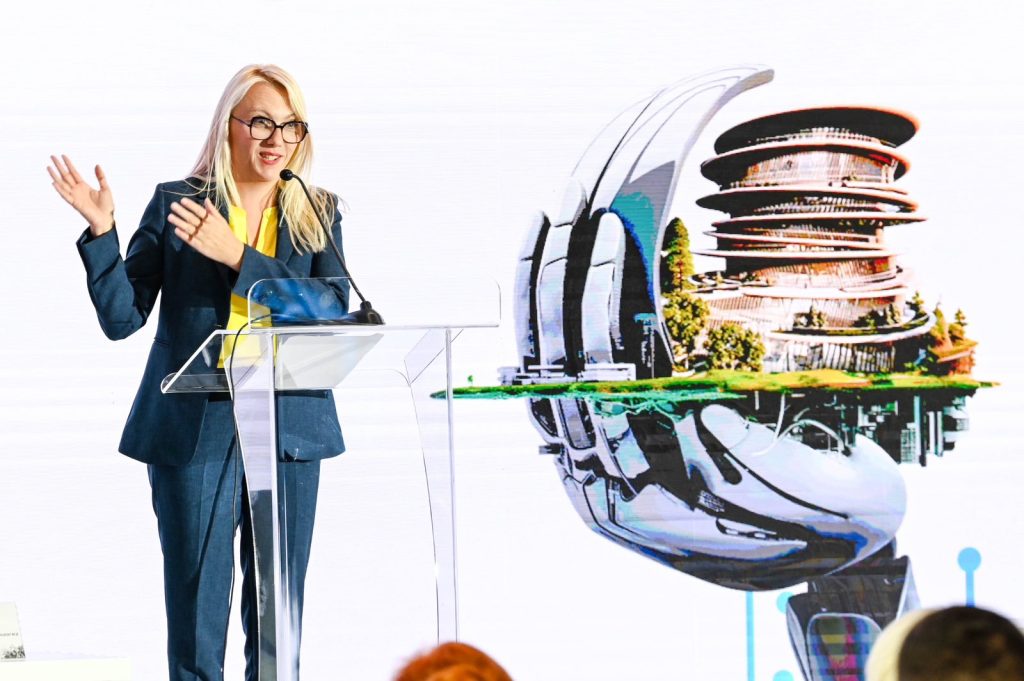Nowadays, you can order a multitude of things to be created for you, from a needle to a locomotive. Yet, just a few decades ago, the idea that companies would offer services to engineer microbes—such as bacteria, viruses, or fungi—seemed unimaginable.
This is precisely what American company Ginkgo Bioworks does. They produce and supply these organisms to other companies for testing, whether it’s for developing innovative drugs, cultivating crops that yield more than current varieties, or creating other improvements for modern life.
While some people design programs and apps, Ginkgo poses the question ‘What if you could make anything?’. They code as well, but their languages aren’t Java, Python, or Ruby; instead, they use DNA and a digital code comprising only four letters—C, T, A, and G—in an endless sequence. This code enables them to program cells and generate new foods, materials, or medicines.
Discussing this with Ginkgo Bioworks co-founder Dr. Reshma Shetty often feels more like fantasy than reality. To many, the concept of extracting DNA from an extinct flower to create a perfume that replicates its scent might still seem far-fetched. However, this reality already exists and continues to become more tangible.
Shetty visited Belgrade in October to take part in the second International Conference Biotech Future Forum 2023, held at the Palace of Serbia. The event, organized by the Government of Serbia and it’s Centre for the Fourth Industrial Revolution, in collaboration with the World Economic Forum and UNDP and with the support of the BIO4 Campus, brought together over 500 participants. Additionally, Shetty had another significant moment—signing a Memorandum of Cooperation with the Government of Serbia.
She embarked on an adventure with three college colleagues and a professor back in 2008, and in less than 10 years, their company became a ‘unicorn,’ reaching a billion-dollar valuation. Presently, it is valued at 2.5 times more. Shetty made it to the Forbes list of ‘Eight People Who Design the Future’ right at the onset of her journey. Last year, she ranked 97th on the Forbes list of the richest self-made women, with an estimated worth of 220 million dollars.
A plant or a laptop
She often delivers lectures and has become recognizable through the image she uses to commence her presentations. The photo, taken from a bird’s eye perspective, showcases various marvels of technology—a laptop, a phone, a tablet, a watch, headphones, a USB stick, a camera… and a potted plant. When questioned about which among these items is the most technologically advanced, she promptly affirms to the audience that it is indeed the plant. ‘It’s the most incredible piece of technology an engineer can envision,’ she explains.
Why is it considered the most advanced? It can self-replicate, self-repair, and self-build. Moreover, it’s renewable. And when you ‘read’ it, that’s when the miracles begin.
‘The cost of reading and writing DNA has dramatically decreased, several tens of times over the last decade, and more.’ What does this mean for all of us? You can glance out the window and witness incredible biodiversity—trees, plants, grains, and animals of all kinds. Now, we can decipher the genetic code behind each of them and comprehend the capabilities of these living organisms. From small organisms like diatoms (silicate algae) in the ocean, capable of producing atomically precise nanostructures, to vast forests that can absorb substantial amounts of carbon dioxide from the atmosphere,’ Shetty informed Forbes Serbia.
‘Biology is capable of astounding feats, and DNA reading technologies enable us to fathom the genetic blueprint that facilitated these extraordinary abilities. With DNA writing, we can physically print new DNA segments. If we aim to alter what a microbe does or what a cell line produces, we can reprogram or rewrite the DNA of that cell, enabling it to perform new functions it wasn’t capable of before.’
Life on Mars hinges on biotechnology
While we contemplate populating Mars with Elon Musk at the forefront of our thoughts, he likely has Reshma Shetty and similar scientists in view because the knowledge and prowess of biotechnology will be fundamental for human settlement on that planet. Hence, Shetty has a ready answer to the question of which three words would describe the future of biotechnology: ‘Life on Mars.’
Biotechnology’s potential became evident during the pandemic, as it played a pivotal role in vaccine development. Delving into the realm of imagination, Shetty asserts that she can create a material akin to cowhide without utilizing cowhide.
Owing to the escalating capabilities of biotechnology, many ponder whether it accelerates evolution or spawns’ new life. ‘To be frank, we’re doing a bit of both, as evolution is what gives rise to new species and life forms. We’re simply utilizing the tools that evolution has bestowed upon us and engineering new cells,’ Shetty explains.
‘There’s a saying that when people attempt to forecast the future, they underestimate what will transpire in 10 to 15 years and overestimate what will occur in five.’ Predicting what lies ahead is challenging, but observing the pandemic’s outcome, where within a remarkably brief period, undoubtedly a record compared to any previous vaccine, we developed something safeguarding us from the virus, serves as an example of what the world can achieve with sufficient motivation. I believe the potential of biotechnology is boundless, and it’s just a matter of time until we reach that point. I am exceedingly optimistic,’ Shetty emphasizes.
Food and health
In the realm of practical applications, biotechnology plays a significant role in enhancing sustainability and revolutionizing food production methods. It encompasses reducing the usage of chemical pesticides and minimizing the need for excessive fertilizers in crop cultivation. Shetty envisions a future where we sow more and dig less.
‘Fostering a more sustainable food supply chain with minimal environmental impact is a way biotechnology can contribute to a sustainable future,’ Shetty asserts. ‘I firmly believe our planet can nourish its population in a far more sustainable manner than it does presently.’
Regarding health challenges, she emphasizes the importance of ensuring that individuals lead healthier lives rather than merely extending human lifespans. ‘I anticipate that future therapies will increasingly rely on biology, enhancing the duration during which people live healthier lives,’ she notes.
Collaboration with Serbia
Collaboration with Serbia holds significance for Shetty: ‘Certain officials within the Government of Serbia have been introduced to Ginkgo, and over the past few months, discussions have culminated in the signing of a Memorandum of Understanding.’ She outlines two potential areas of collaboration: ‘Our platform can assist Serbian biotech companies in bringing their products to market.’
‘Whether these companies are established in Serbia or are nascent startups, even comprising just a couple of individuals with a conceptualized product, we’re eager to grant them access to our cell engineering platform. This allows us to take charge of research and development on their behalf, drastically reducing time and costs in bringing new products to fruition. The second facet involves the biosecurity segment, and there’s a shared interest in commencing the establishment of infrastructure, enabling Serbia to monitor biological threats,’ explains Shetty.
Contemplating future pandemics
Shetty advocates for proactive measures. ‘Preventing future pandemics involves governmental readiness for worst-case scenarios. However, synthetic biology, my area of expertise, offers a different means of preparedness than before.’
‘Our pandemic learning taught us that biology is not static; it evolves and changes, as evidenced by the COVID virus. Governments must focus on swiftly developing the capacity for rapid responses. This involves monitoring emerging biological threats and promptly devising countermeasures. This, I believe, is crucial for our future safety. Stockpiling vaccines isn’t to be discounted, but the emphasis should lie on rapid response capacities,’ emphasizes Shetty.
Nevertheless, biotechnology faces hurdles, according to Shetty. ‘There are several challenges. One aspect is simplifying and making biological engineering more predictable. The integration of artificial intelligence will significantly aid in this.’
‘I also believe that there are prevailing issues with the acceptance of such technologies. If introducing a new therapy to the market, people tend to be receptive, and regulations allow it. However, altering attitudes and regulations to foster sustainable eating habits and production methods will be crucial. This necessitates a shift in societal attitudes and regulatory frameworks to embrace biotechnological products,’ evaluates Shetty.
Biosecurity is a priority
Biosecurity stands as a paramount concern, akin to cyber security, amidst the boundless opportunities presented by the Internet and biotechnology.
‘The Covid pandemic served as a profound lesson on potential threats.’ The stark reality remains that a minute biological entity spiraling out of control has triggered global repercussions—economic and health-related. It’s not solely human pathogens that warrant concern; we must also consider pathogens endangering the livestock we rely on for sustenance and those affecting our agricultural produce. These domains are interlinked, inseparable. We necessitate biosecurity strategies, imperative measures crafted by governments to surveil uncontrolled biological aspects, enabling prompt action to contain and prevent the spread of threats,’ underscores Shetty.
‘It’s a global necessity, transcending the boundaries of just a couple of countries,’ emphasizes Shetty, stressing the need for universal biosecurity capabilities.
She advocates for the formation of communities or alliances with a shared aim of leveraging biotechnology for benevolent purposes. ‘I believe fostering communities or nations largely driven by the ethical use of biotechnology can ensure that those with altruistic motives stay ahead of malevolent intentions.’
Navigating the entrepreneurial realm
Shetty reflects on the genesis of the company: ‘My colleague Jason exhibited the most enthusiasm about starting the company. When we conversed, our dedication to synthetic biology and a plethora of ideas on how the field could tangibly impact the world fueled our motivation.’
‘I’d say I was stepping into the unknown, and sometimes, that’s an advantage,’ she adds. ‘My primary interest was simplifying biological engineering, and I deemed launching a startup as the optimal path to tackle that challenge.’
Established in 2008, the company faced adversity early on, grappling with the global financial crisis merely a month or two post its inception. Private capital was scarce, yet the US Government’s economic stimulus package came as a saving grace, bolstering their financial standing.
‘Undoubtedly, state investment played a pivotal role. During the initial years, a significant portion of our funding stemmed from contracts with governmental bodies,’ explains Shetty.
Private investor support surfaced after six years, with funds secured from the startup accelerator Y Combinator in California. Noteworthy for backing ventures like Stripe, Airbnb, Dropbox, and Instacart, Y Combinator extended its funding scope from technology to biotechnology in 2014. Ginko emerged as the first biotech company they supported, paving the way for subsequent investments from Silicon Valley’s business angels,” adds Shetty.
Council for startups in Serbia
Serbia boasts a rich legacy of education in STEM fields (Science, Technology, Engineering, and Mathematics), coupled with formidable scientific and technical expertise—a significant asset. In starting a company, the most challenging part lies in making that initial leap, as fear of the unknown is inherent. The best times to venture into entrepreneurship are either at the onset of one’s career when living on limited means is manageable or later when risks can be afforded. The key is selecting a technology field that ignites genuine passion.
‘Whether a startup thrives, or falters hinges on a blend of luck, timing, market conditions, and factors beyond control. Regardless, taking that step to pursue what you truly love, sans regrets, is crucial,’ advises Shetty.
She emphasizes the pivotal role of the business culture in shaping entrepreneurial endeavors. ‘In the US, failure is seen as a learning experience, often garnering more financial support for the lessons learned. Conversely, other cultures perceive failure less favorably.’
Shetty articulates a shift in her perspective from being actively engaged in science to creating an environment conducive to fostering remarkable scientific work. ‘We’re fortunate to house incredibly talented engineers and scientists, and at this juncture, I delegate most scientific endeavors to them. My current role is that of a leader, involved in multifaceted tasks, relying on the expertise of individuals smarter than me in scientific domains,’ she highlights.
Acknowledging the promising future of biotechnology, Shetty foresees sustained investor interest globally, despite a current somewhat subdued stance compared to previous years.
Shetty elucidates the company’s mission to simplify biological engineering. ‘Historically, biotech companies have predominantly focused on high-value products due to the immense investments needed for market entry. Simplifying biological engineering reduces development costs, enabling biotech to offer a more extensive array of products meeting global needs,’ states Shetty.
Author of the article: Ivan Radak, editor, Forbes Serbia. Source: HERE.





